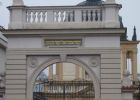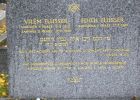Flusser Studies 05 - November 2007 / Special Czech Issue
Gustav Flusser. Biographische Spuren eines deutschen Juden in Prag vor dem zweiten Weltkrieg
Vilém Flusser remembered his native town Prague as a multicultural city with competing and overlapping modern identities that was split into its Czech, German and Jewish „components“ by the invasion of Nazi Germany in spring 1939. This paper reconstructs the unknown biography of his father Gustav Flusser and argues that Vilém’s memories do not just follow the common narrative of Prague as a „city of three peoples“, but that they also refer to his father‘s life in meaningful ways. Gustav, born in 1885 in the small Czech town of Rakovník, attended German Jewish and Czech schools, and, after moving with his familiy to Prague, he studied at the German University to become a teacher of mathematics and of Czech language at Prague’s German Business School. As a member of the Jewish order B’nai B’rith and the Toynbee Hall, as a translator of political pamphlets and as a contributor to the Prague German journal Die Wahrheit, he tried hard to facilitate the dialogue between people of different cultural, religious and political orientations.
Letters
Medialita a problémy zprostředkování / Denkbare Hintergründe
~The subject takes part in and constructs what it perceives, shifting, thus, the presuppositions, that
is, the ‚pre-formats‘ of this construction into the background, out of reach of that which is
manifesting itself. In fact, within the framework of its own construction, the subject does not
dispose of any possibilities of transferring other heterogeneous settings into a unique target
format upon which the world of objects is constructed. In order to achieve this the subject needs
a determinate interactive interface, i. e., mediation. Access to mediation, that is, to the interfaces
combining the different settings, to complexity and to the real, helps us to understand the
differences that become accessible to us. Furthermore, access helps us to reach an adequate
understanding of the role of the subject in the world, a world in which the subject is not only
mechanically constructed but, above all, mediated accordingly.
Technický obraz a logická stavba (Bau): Flusser a Wittgenstein / Das technische Bild und der logische Bau: Flusser und Wittgenstein
Both Wittgenstein and Flusser tried to find an answer to the question: how are media possible? Although Wittgenstein does not ask this question explicitly it can be detected in his Tractatus. Because of this fundamental similarity between both thinkers, it is possible to read Wittgenstein's theory of logical form from the point of view of Flusser's concept of techno-image and to interpret Flusser's notion of medium from the point of view articulated in Wittgenstein's Tractatus. At the same time, it is necessary to focus on their differences. Wittgenstein deals with the problem of the form of a significant world, while Flusser
focuses on the problem of specific artifacts, that is, technical images. For Wittgenstein a medium is generally one object placed among other objects. Flusser, on the other hand, is interested in a specific medium situated among other artifacts.
Filosofie médiía změna paradigmat / Medienphilosophie und Paradigmenwechsel
In the context of contemporary media-philosophy discussions, the article is focusing on a theory of mediation we can find in Flussers texts. With his concept of a “change of paradigms” Flusser describes the dilemmas of the theoretical reflections regarding contemporary media culture: the evolution of media (or cultural techniques) and these media’s theories question basic metaphysical concepts - objectivity, reality, the material and their symbols, things, rationality etc. Today the focus is on mediation, the forms of knowledge, perception and communication. With his theories of a hierarchy of codes, writing and image, and society as a network, Flusser suggests theoretical models that could help to provide answers to questions of today’s cultural, communication, social and technical processes, and to their interaction.
Flusser a metafyzika / Flusser und Metaphysik
Although Flusser proposes to examine human communication from a dispassionate, non-ideological point of view, his analysis is based on metaphysics. In his description of dialogical communication structures we can detect, in fact, a double recourse on metaphysics. On the one hand there are circular dialogues which, according to Flusser, originate in the Greek agora, on the other are certain net dialogues which originate from Jewish philosophy. The first case, a fundamentally Platonic type, is based on an ascending metaphysics, a movement from concrete reality into the realm of truth. In the second case, one is not looking for ideas or abstract principles but moving downwards toward concrete reality in order to find an embodiment for these ideas or principles. These structures allow us to reconsider not only metaphysics itself but also our notions of concrete reality.

